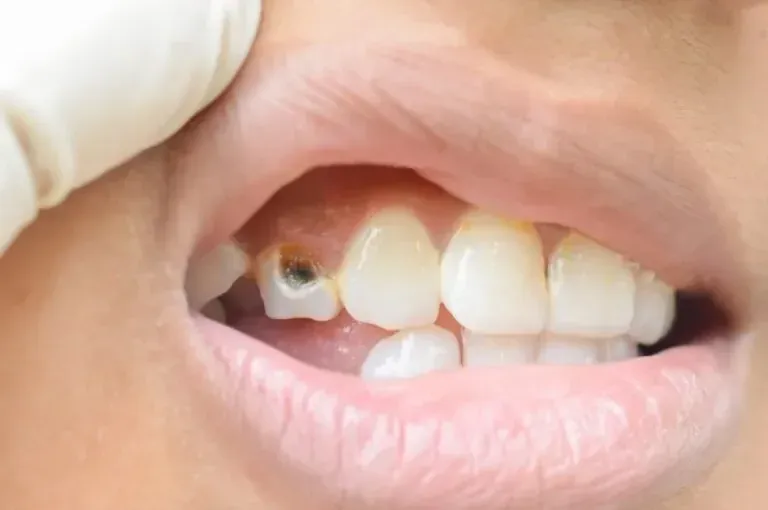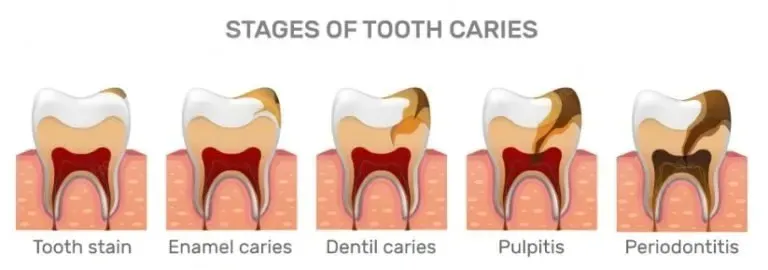Kill Tooth Pain Nerve in 3 Seconds Permanently: Separating Fact from Fiction in 2026
Tooth pain can be absolutely unbearable, and when you’re suffering, the promise of instant relief sounds…
Tooth pain can be absolutely unbearable, and when you’re suffering, the promise of instant relief sounds like a miracle. You’ve probably seen claims online about “killing” a tooth pain nerve in just three seconds—but is this really possible? As we move through 2026, it’s more important than ever to separate fact from fiction when it comes to dental pain relief. In this comprehensive guide, we’ll explore what’s actually possible, what’s safe, and what you should do when extreme tooth pain strikes.
Can You Really Kill a Tooth Pain Nerve in 3 Seconds?
Let’s address the elephant in the room: the idea of permanently eliminating tooth pain in three seconds is, unfortunately, a myth. While this claim circulates widely on social media and various websites, the reality of dental anatomy and pain management is far more complex.
Tooth pain typically originates from the dental pulp—the innermost part of your tooth containing nerves, blood vessels, and connective tissue. This pain can result from numerous causes including dental decay, infection, gum disease, trauma, or even sinus pressure. The nerve causing your discomfort is deeply embedded within your tooth structure, protected by layers of dentin and enamel.
While there are legitimate methods to address tooth pain, none of them work instantaneously, and the concept of “killing” a nerve in seconds is both misleading and potentially dangerous. What people often experience with quick remedies is temporary numbing or pain masking—not actual nerve destruction or permanent pain relief.
Why it helps: Contains 20% benzocaine to provide fast-acting topical numbing for temporary relief of severe tooth pain.
The Truth About “Killing” Tooth Pain Nerves: What Actually Works
When people talk about “killing” a tooth pain nerve, they’re usually referring to one of three things: numbing the nerve temporarily, reducing inflammation around the nerve, or actually removing the nerve through professional dental treatment. Let’s break down the legitimate approaches:
1. Over-the-Counter Pain Medications
Medications like ibuprofen and acetaminophen don’t target the nerve directly but work by reducing inflammation and blocking pain signals to your brain. Many people find success with combining Tylenol and ibuprofen for tooth pain, which can provide more comprehensive relief than either medication alone.
These medications typically take 20-30 minutes to begin working and provide relief for several hours. They’re excellent for managing pain while you wait for a dental appointment, but they don’t address the underlying problem.
2. Topical Anesthetics and Numbing Gels
Over-the-counter products containing benzocaine, lidocaine, or similar local anesthetics can temporarily numb the affected area. These work relatively quickly—usually within 1-2 minutes—but the relief is superficial and short-lived, typically lasting 15-30 minutes.
While these products can provide temporary comfort, they’re not a solution for the underlying dental issue causing your pain.
3. Professional Dental Interventions
The only way to truly and permanently “kill” a tooth pain nerve is through professional dental treatment. This might include:
- Root canal therapy: This procedure removes the infected or damaged pulp (including the nerve) from inside your tooth, then seals it to prevent further infection
- Tooth extraction: In cases where a tooth cannot be saved, removal eliminates the source of pain permanently
- Pulpotomy: A partial removal of the pulp tissue, sometimes used as a temporary measure
These are the only methods that actually remove or destroy the nerve causing pain, and they require professional expertise and proper anesthesia.
The Risks of DIY Nerve “Killing” Methods
In 2026, despite advances in dental care accessibility, many people still attempt home remedies to “kill” tooth nerves. These approaches carry significant risks:
1. Masking Serious Underlying Problems
When you temporarily numb pain without addressing its cause, you’re allowing the underlying issue—whether it’s an infection, abscess, or severe decay—to progress. A tooth abscess that goes untreated can lead to serious systemic infections, including sepsis in extreme cases.
2. Chemical Burns and Tissue Damage
Some online “remedies” suggest using substances like clove oil, alcohol, or even household chemicals directly on the tooth or gums. While clove oil contains eugenol (a natural anesthetic), improper use can cause chemical burns to your gum tissue. More dangerous substances can cause permanent damage to your oral tissues.
3. Temporary Relief Leading to Delayed Treatment
When you find something that temporarily relieves your pain, you might postpone seeing a dentist. This delay can transform a simple cavity requiring a filling into a situation requiring a root canal or extraction—more expensive, more invasive, and more painful in the long run.
4. Allergic Reactions and Complications
Many topical anesthetics and home remedies can trigger allergic reactions, especially if you have sensitivities to certain compounds. Overuse of numbing agents can also lead to complications like methemoglobinemia (a rare but serious blood disorder).
Why it helps: Contains eugenol (clove oil) for natural pain relief plus applicators for precise application to the affected tooth.
Safe and Effective Alternatives to Instant Nerve “Killing”
Rather than searching for a magical three-second solution, focus on these evidence-based approaches to managing tooth pain:
1. Schedule Emergency Dental Care
This should always be your first priority. Most dental offices in 2026 offer same-day emergency appointments, and many communities have urgent dental care clinics. If you’re experiencing severe pain that painkillers aren’t helping, don’t wait—seek professional care immediately.
2. Use Appropriate Pain Management
While waiting for your appointment, use over-the-counter pain relievers as directed. For most adults, alternating between ibuprofen (400-600mg) and acetaminophen (500-1000mg) every 3-4 hours provides optimal pain control. Always follow package directions and consult with a healthcare provider if you have any medical conditions.
3. Apply Cold Compresses
Applying a cold compress to the outside of your cheek for 15-20 minutes at a time can reduce inflammation and numb the area naturally. This is particularly effective for pain caused by trauma or swelling.
4. Elevate Your Head
When lying down, prop your head up with extra pillows. This reduces blood flow to the affected area and can minimize throbbing pain, especially during the first night after tooth extraction or when dealing with acute dental pain.
5. Rinse with Warm Salt Water
A simple saltwater rinse (1/2 teaspoon salt in 8 ounces of warm water) can help reduce inflammation and cleanse the area around a painful tooth. Swish gently for 30 seconds, then spit out. Repeat every few hours as needed.
6. Avoid Triggers
Stay away from extremely hot, cold, sweet, or acidic foods and beverages that might aggravate your tooth pain. Stick to soft, room-temperature foods until you can see a dentist.
7. Maintain Gentle Oral Hygiene
Continue brushing and flossing carefully, even around the painful area. Sometimes food particles trapped between teeth or along the gum line contribute to pain, and gentle cleaning can provide relief.
Professional Treatments That Actually Eliminate Tooth Pain Permanently
When you see a dentist for tooth pain, they’ll diagnose the underlying cause and recommend one of these proven treatments:
1. Dental Fillings
For cavities that haven’t reached the nerve, a simple filling can restore the tooth’s structure and eliminate pain. Modern composite fillings can be completed in a single visit and provide immediate relief once the anesthesia wears off.
2. Root Canal Therapy
Despite their reputation, modern root canals are relatively comfortable procedures that permanently eliminate tooth pain by removing the infected or damaged nerve. Contrary to popular belief, root canals typically don’t hurt more than getting a filling, thanks to effective local anesthesia.
3. Dental Crowns
For teeth with extensive decay or damage, a crown can protect the remaining tooth structure and eliminate pain caused by exposure or fractures. Crowns are often placed after root canal therapy to provide additional protection.
4. Antibiotics for Infections
If your tooth pain is caused by a bacterial infection or abscess, your dentist will likely prescribe antibiotics to eliminate the infection before proceeding with other treatments. However, antibiotics alone won’t solve the problem—you’ll still need follow-up dental work.
5. Tooth Extraction
When a tooth is too damaged to save, extraction provides permanent relief from pain. While losing a tooth isn’t ideal, modern replacement options like implants, bridges, or dentures can restore both function and appearance.
Why it helps: Alcohol-free formula with CPC helps reduce bacteria and inflammation that can contribute to tooth and gum pain.
What to Do When Tooth Pain Strikes: Your Action Plan for 2026
If you’re experiencing tooth pain right now, follow these steps:
Step 1: Assess the Severity
Is your pain mild and manageable, or severe and debilitating? Can you identify a specific tooth, or is the pain diffuse? Are there any signs of swelling, fever, or difficulty swallowing? Severe symptoms require immediate emergency care.
Step 2: Take Appropriate Pain Medication
Start with over-the-counter pain relievers as directed. If you’re unsure which medication is best for your situation, consider reading about the best painkillers for tooth nerve pain.
Step 3: Contact a Dentist Immediately
Don’t wait to see if the pain goes away on its own. Call your dentist’s office first thing in the morning, or if it’s after hours, look for emergency dental services in your area. Many dental practices now offer telehealth consultations that can help you determine if you need immediate in-person care.
Step 4: Use Temporary Relief Measures
While waiting for your appointment, use the safe methods mentioned earlier: cold compresses, saltwater rinses, elevation, and over-the-counter topical anesthetics used as directed.
Step 5: Avoid Making It Worse
Don’t chew on the affected side, avoid extreme temperatures, and don’t attempt any DIY dental procedures. If you’re experiencing pain after a recent dental procedure, such as pain after getting a temporary crown, contact your dentist to discuss whether this is normal or requires attention.
Step 6: Document Your Symptoms
Keep notes about when the pain started, what makes it better or worse, and any other symptoms you’re experiencing. This information will help your dentist diagnose the problem more quickly and accurately.
Prevention: The Best Way to Avoid Tooth Pain
While this article focuses on managing existing tooth pain, the best approach is preventing it in the first place. Here’s how to protect yourself in 2026:
- Maintain excellent oral hygiene: Brush twice daily for two minutes, floss once daily, and consider using an antimicrobial mouthwash
- Visit your dentist regularly: Schedule checkups and cleanings every six months, or more frequently if recommended
- Address problems early: Don’t ignore minor tooth sensitivity or occasional pain—these are often early warning signs of developing problems
- Wear protection: If you grind your teeth at night, invest in a quality night guard to prevent damage
- Eat a tooth-friendly diet: Limit sugary and acidic foods, and drink plenty of water throughout the day
- Don’t use your teeth as tools: Avoid opening packages, cracking nuts, or chewing on ice with your teeth
The Bottom Line: There’s No Magic Bullet for Tooth Pain
As we navigate dental health in 2026, it’s crucial to approach tooth pain with realistic expectations. The promise of “killing” a tooth pain nerve in three seconds is simply not grounded in dental science or reality. While this claim may be tempting when you’re suffering, pursuing such quick fixes can lead to delayed treatment, worsening conditions, and potentially serious complications.
The truth is that effective, permanent relief from tooth pain requires professional dental care. Temporary measures can help you manage discomfort while waiting for treatment, but they should never replace proper diagnosis and care from a qualified dentist.
If you’re experiencing tooth pain, don’t gamble with your health by trying unproven remedies or delaying professional care. Modern dentistry offers safe, effective, and relatively comfortable solutions for virtually every type of dental pain. Your dentist has the training, tools, and techniques to not only eliminate your pain but also address the underlying cause, protecting your oral health for years to come.
Remember: tooth pain is your body’s way of telling you something is wrong. Listen to that signal, seek professional help promptly, and you’ll be back to living pain-free much sooner than if you chase after miracle cures that simply don’t exist.







